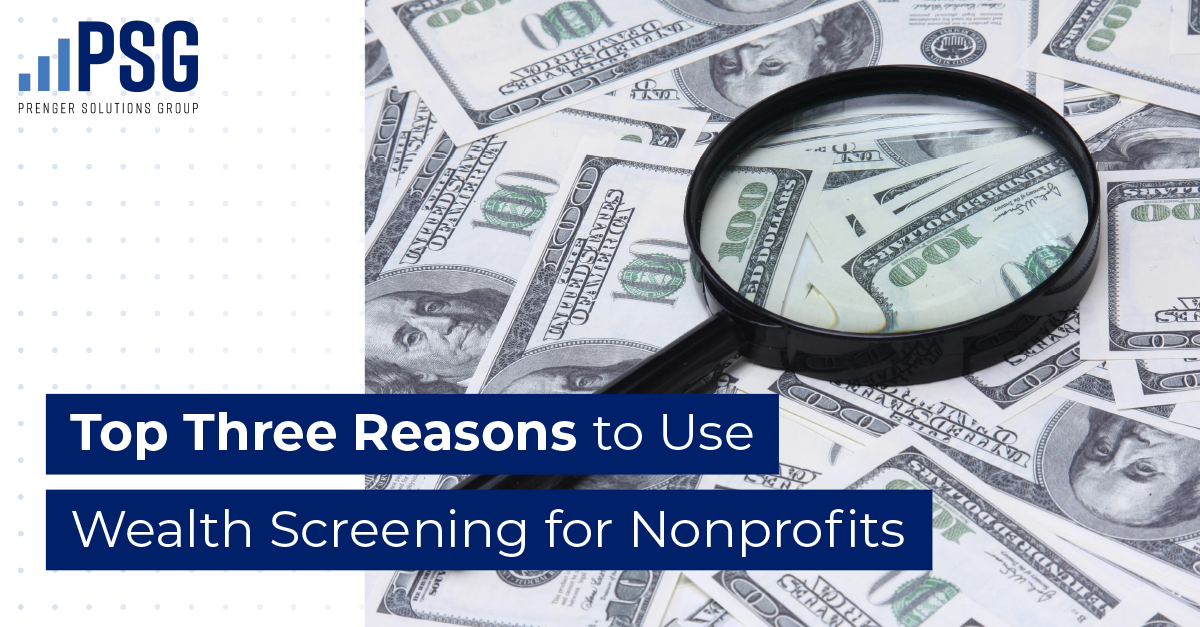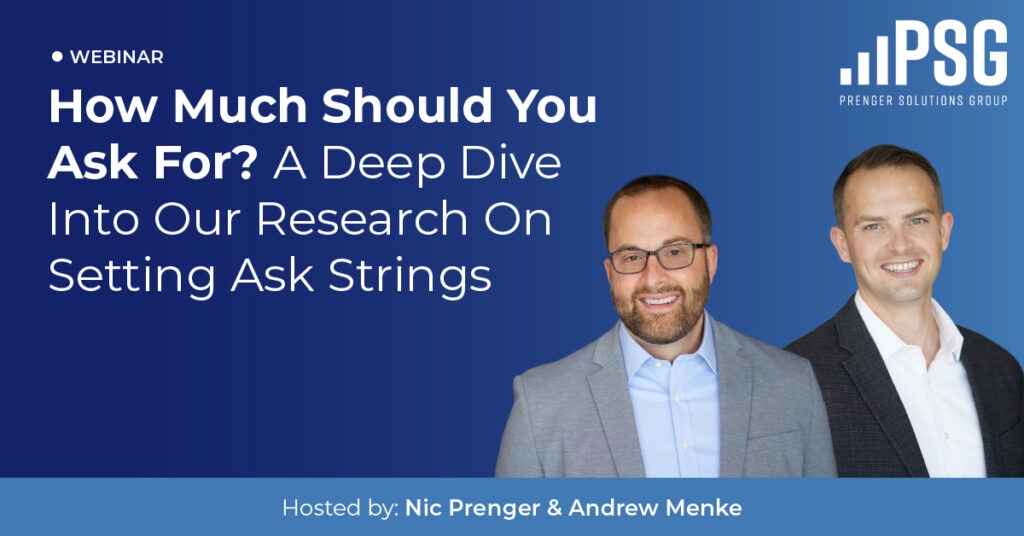Understaffed nonprofit organizations may find themselves seeking ways to maximize fundraising staff time. Development professionals in these small shops must learn to balance many aspects of fundraising and find tools to increase efficiency.
Wealth screening for nonprofits can be a valuable tool to help fundraisers work more effectively with the time they have. It allows nonprofit fundraising professionals with limited resources to focus on the activities and relationships most likely to result in charitable dollars to further the nonprofit’s mission.
Donor relationships are critical in fundraising, and a data-driven approach that uses wealth screening can help fundraisers focus major gift efforts on donors with high net worth. Wealth screening can be a great indicator of potential giving capacity, but it’s not guaranteed that the donor cares about your organization. To give, the donor must feel a connection with the mission.
Donor relationships are always important, but wealth screening and prospect research tools will help fundraisers know which relationships to focus on when seeking major gifts.
When asked about using wealth screening for nonprofits, Nic Prenger, founder of Prenger Solutions Group and AskGenius, stated, “It is not a silver bullet, but when used correctly, it can dramatically increase the effectiveness of your fundraising program. Conducting a wealth research screen of your donor database can help you identify diamonds in the rough who may have significant giving capacity.”
We compiled the top three reasons to use wealth screening for nonprofits as part of a comprehensive fundraising plan. From direct mail appeals to major gift and capital campaigns, wealth screening tools can help segment donors and improve the success of fundraising efforts.
1. Nonprofits are understaffed and under-resourced, so development professionals must manage their time efficiently.
Development staff must make the most of the budget and tools available and regularly decide how to allocate their limited resources. Wealth screening can help determine which prospects in the donor base are suitable for which efforts.
Wealth research helps development professionals make data-driven decisions about which prospects should be included or left off a mailing list and which donors should be prioritized for personal visits and other cultivation activities.
It can help determine which donor relationships may be the most successful for major gifts and which donors are best suited for other forms of giving.
2. Wealth screening tools can provide scores to make data-driven decisions, such as setting personalized ask amounts for every prospective donor in the database.
Tools like AskGenius can use wealth research to help set better ask amounts for every donor. Setting personalized ask strings for every donor in nonprofit direct mail campaigns can be the number one way to increase giving through direct mail.
A recent study published in The Wall Street Journal highlighted the importance of presenting donors with ask amounts, “participants given a range of contributions were more likely to donate money than the participants given an open-ended question.”
The only exception to this rule is major donors. Research finds that major donors give more when presented with an open-ended response card.
Wealth screening can help determine which donors to present ask strings to and which to provide an open-ended ask.
3. Wealth research allows nonprofits to quickly identify potential major donors who might otherwise “fly under the radar” when they attend an event or sign up for an e-newsletter.
Understanding donor capacity can help determine which donors to focus on for major gift fundraising. While donor relationships are essential with every donor, screening tools can help development staff identify which giving vehicles might be suited for donors of high net worth, business affiliations, real estate ownership, or other wealth markers.
Fundraisers understand that only some campaigns or giving opportunities are right for certain types of donors, and wealth screening for nonprofits can help segment donors for each aspect of their development strategic plan.
Wealth screening for nonprofits is a tool that increases effectiveness and helps fundraisers to identify potential major donors inside their donor database. While someone from the nonprofit staff still needs to review the results to confirm that the screen connects data to the right person, it is still a tool that increases efficiency.
The wealth screening process can help nonprofits segment donors for different campaigns and giving opportunities. For nonprofits with multiple gift officers, it can help determine which prospects belong in each portfolio of the donor base.
Wealth research can help fundraisers understand where their time is best spent and improve job satisfaction among development professionals. Selecting the right tools can also help improve the outcomes of fundraising efforts.
Using data-driven methods can also improve the experience of the donor. Donors who are asked for the right gift at the right time will be more likely to give and feel the impact of their philanthropy.
To learn how AskGenius uses wealth research to set the perfect ask amount for every donor, sign up for a demo today. AskGenius was built by professional fundraisers who know how to interpret wealth research findings and how they should be weighed against other key factors, such as the donor’s largest gift, the time since the donor made their most recent gift, and other factors.
All the data points uniquely interplay with one another, which is what makes the nuanced AskGenius algorithms so powerful and valuable to busy nonprofits. Using a wealth screening tool for nonprofits can change how fundraisers use their time and improve donor relationships as staff approach suitable donors about major gifts.
Consider using a wealth screening tool today. To continue learning more about the insights of the AskGenius team, sign up for our newsletter today.
















